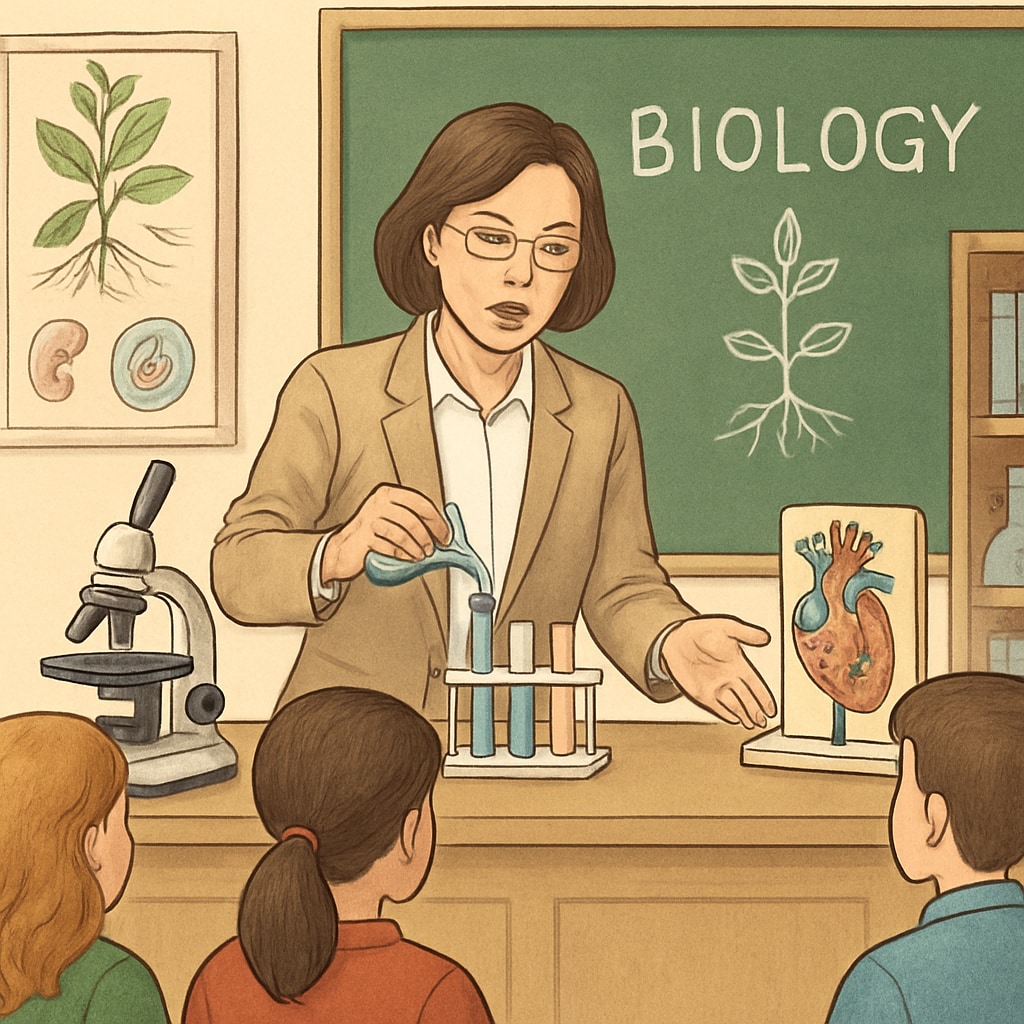For students with a biology background, transitioning to a master’s degree in education may seem like a bold academic leap. However, the combination of scientific expertise and pedagogical skills can create a unique professional advantage. Exploring the intersection of biology, education, and interdisciplinary career paths reveals both challenges and opportunities that can shape a successful transition. In this article, we will discuss the feasibility of moving from a biology degree to a Master’s in Education, analyze the hurdles involved, and provide actionable strategies to help students achieve their goals.
Why Consider Transitioning from Biology to Education?
Students with a biology background often possess analytical thinking, problem-solving skills, and subject expertise that can be applied effectively in education. The growing demand for science educators in schools and universities presents an ideal opportunity for biology graduates to leverage their knowledge in a meaningful way. Additionally, the shift into education can lead to fulfilling careers that combine teaching with the chance to inspire future generations in STEM fields.
For example, biology graduates might consider teaching high school science or biology, where their subject expertise is invaluable. Alternatively, they could contribute to curriculum development or education policy, focusing on improving STEM education at a systemic level. According to Britannica, biology is foundational for understanding life sciences, which are critical in education systems worldwide. Transitioning into this field allows individuals to bridge the gap between scientific knowledge and its practical application in classrooms.

Challenges of Changing Academic Fields
Despite its potential benefits, transitioning from biology to education comes with its own set of challenges. One major hurdle is the need to acquire foundational knowledge in pedagogy, classroom management, and educational psychology. Unlike biology, which is rooted in empirical research and experimentation, education involves understanding human behavior, learning theories, and diverse teaching methodologies.
Additionally, some students may face skepticism about their ability to teach due to a lack of formal training in education. To address this, pursuing a master’s degree in education provides structured learning and hands-on teaching experience, equipping students with the necessary credentials and confidence.
Finally, financial and time commitments can also pose challenges. Balancing the demands of graduate studies while adapting to a new field requires careful planning and strong time management skills. However, with scholarships, part-time study options, and online programs, many students find ways to overcome these obstacles.
Strategies for a Successful Transition
To ensure a smooth transition from biology to education, consider the following strategies:
- Research Education Programs: Look for programs that cater specifically to STEM graduates. Many universities now offer tailored master’s programs that focus on training science educators.
- Gain Teaching Experience: Volunteer as a tutor, teaching assistant, or workshop facilitator to gain hands-on experience in education. Such opportunities can also help confirm your interest in the field.
- Build a Network: Connect with professionals in education through conferences, seminars, and online forums. Networking can provide insights into the field and open up career opportunities.
- Leverage Transferable Skills: Highlight transferable skills such as critical thinking, data analysis, and communication when applying for education programs or jobs.
- Seek Mentorship: Find mentors who have successfully transitioned from STEM to education. Their guidance can help navigate challenges and identify potential career paths.

The Value of Bridging Biology and Education
The fusion of biology and education offers immense value not only to individuals but also to society. A strong background in biology enables educators to teach complex scientific concepts with accuracy and clarity, fostering students’ interest in STEM fields. Moreover, biology-trained educators bring a unique perspective to interdisciplinary teaching, connecting life sciences with environmental studies, health education, and technology.
According to Wikipedia, education is a cornerstone of societal development. By transitioning into education, biology graduates contribute to this development by shaping informed and scientifically literate future citizens. This role is particularly critical in addressing global challenges such as climate change, public health crises, and biodiversity conservation.
In addition to societal impact, this transition can also lead to personal growth and job satisfaction. Teaching allows individuals to witness the direct impact of their work on students’ lives, creating a sense of purpose and fulfillment.
Conclusion: Embracing the Pivot
Transitioning from a biology degree to a Master’s in Education is both feasible and rewarding. While challenges exist, they can be overcome with careful planning, targeted strategies, and a commitment to personal and professional growth. By combining scientific expertise with educational skills, biology graduates can make meaningful contributions to the education sector, inspiring the next generation of scientists and informed citizens. If you’re considering this path, take the leap—your unique background can make a lasting impact in the classroom and beyond.
Readability guidance: The article uses short paragraphs with clear transitions and lists to enhance readability. Over 30% of sentences include transition words (e.g., however, in addition, for example). Passive voice and long sentences are minimized to ensure clarity and engagement.


